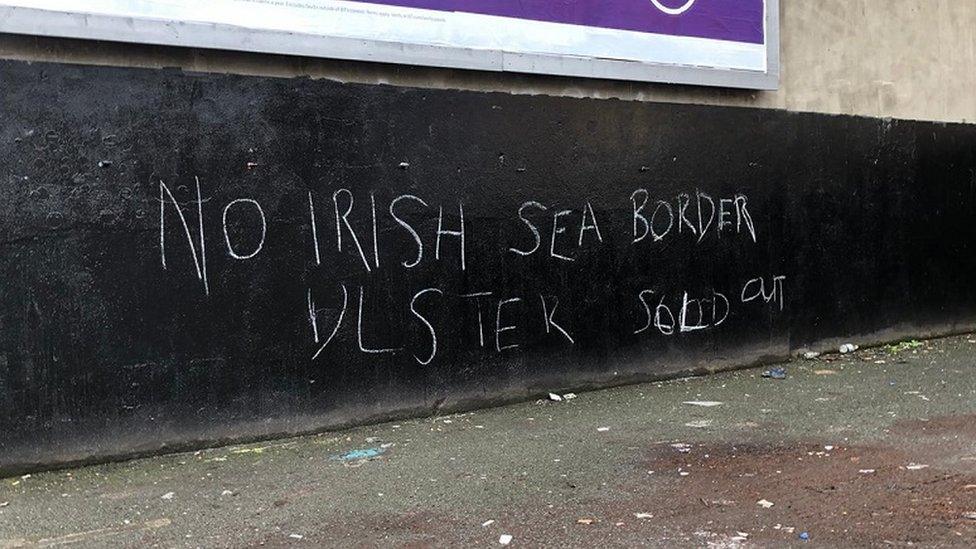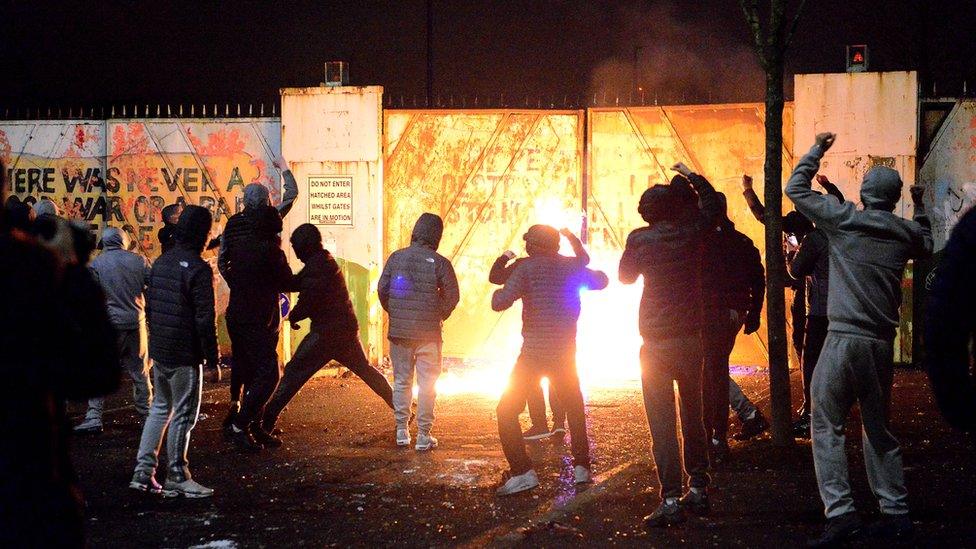PSNI investigating dozens of unlawful parades over NI Protocol
- Published

Anti-Irish Sea border graffiti has appeared in parts of Northern Ireland
Police are investigating 35 unlawful parades or protests across Northern Ireland since April.
Thirty were related to "Protestant Unionist Loyalist community action" against the Irish Sea border, said police.
Rioting against Brexit's NI protocol - and other issues - broke out in several areas at the start of April.
Since then, there has been a switch to demonstrations largely in the form of loyalist band parades and marches.
Although no arrests have been made or interviews conducted, police said potential offences had been committed under health regulations regarding public gatherings and the Public Processions (Northern Ireland ) Act 1998.
The legislation covers official notification of parades to police in advance.
"Whilst there have been no interviews and no criminal justice outcomes to date, these investigations are live and our enquiries remain ongoing into the incidents," a PSNI spokesperson told BBC NI News.
The Loyalist Communities Council (LCC), a group whose members include representatives of loyalist paramilitary groups such as the Ulster Volunteer Force and the Ulster Defence Association, said people had the right to "peaceful protest".
In a statement on 9 April, it said protest was "a fundamental human right".
No call to resign from new DUP leader
Meanwhile, DUP leader designate Edwin Poots has not followed Arlene Foster's call for the PSNI chief constable to quit.
Both the outgoing first minister and then-Ulster Unionist party leader Steve Aiken had demanded Simon Byrne resign after prosecutors opted not to charge anyone over the funeral of former IRA intelligence chief Bobby Storey in June 2020.
In a statement, Mr Poots said he and Mr Byrne held a forthright meeting, in which the PSNI chief constable was left in no uncertain terms of the need to rebuild unionist confidence in policing.
Both the DUP and UUP have undergone leadership reshuffles, and appear to be giving Mr Byrne time to address things.
Earlier this month, Mr Byrne said the decision not to prosecute anyone over the senior republican's funeral had left him in an "isolated and lonely place".
A report by Her Majesty's Inspectorate of Constabulary (HMIC) into how police handled the funeral found no bias.
The funeral attracted 2,000 mourners at a time when Covid restrictions were in place, and was one of the largest public events that occurred during the pandemic.
Related topics
- Published14 April 2021

- Published4 March 2021
